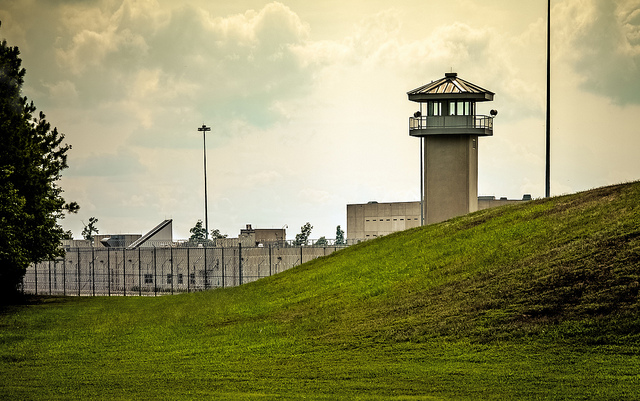Saying Goodbye To The Kojo Nnamdi Show
On this last episode, we look back on 23 years of joyous, difficult and always informative conversation.

Sussex State Prison in Virginia.
Across our region, stories about the criminal justice system in D.C. and Virginia have prompted conversation and change. In the Commonwealth, reporter Tim Eberly wrote a series of articles on offenders caught in the local “three-strikes law,” which eliminates the possibility of parole for certain crimes. And law professor James Forman, Jr. wrote a book about the role D.C.’s black leaders played in the escalation of “tough on crime” legislation after the Civil Rights Era that led to modern mass incarceration. For their efforts, Eberly was named a finalist for the Pulitzer Prize in investigative reporting and Forman won the award in the general non-fiction category. Kojo catches up with both writers on their work, and the impact they’ve made locally.
Series | Secret Injustice
This series of stories from Virginian-Pilot investigative reporter Tim Eberly resulted in changes to Virginia's parole board system. Eberly was honored as a Pulitzer Prize finalist for the work.
"Locking Up Our Own": How Local Black Leadership May Have Fueled Black Incarceration - The Kojo Nnamdi Show
In his new book, former D.C. public defender James Forman Jr. argues that in the aftermath of the Civil Rights Movement, the tough-on-crime policies of local black leaders fueled today's high rates of black incarceration.
On this last episode, we look back on 23 years of joyous, difficult and always informative conversation.
Kojo talks with author Briana Thomas about her book “Black Broadway In Washington D.C.,” and the District’s rich Black history.
Poet, essayist and editor Kevin Young is the second director of the Smithsonian's National Museum of African American History and Culture. He joins Kojo to talk about his vision for the museum and how it can help us make sense of this moment in history.
Ms. Woodruff joins us to talk about her successful career in broadcasting, how the field of journalism has changed over the decades and why she chose to make D.C. home.